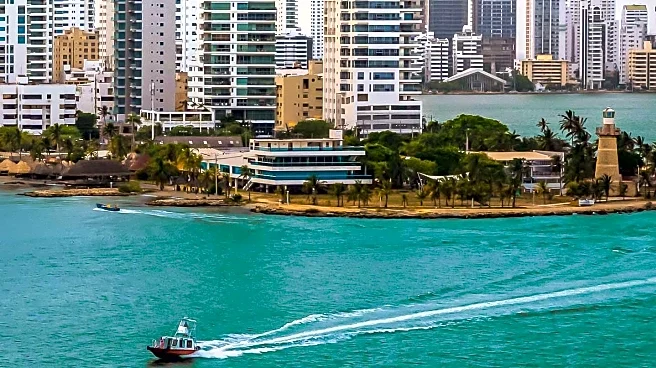What's Happening?
The coastal village of Juanchaco in Colombia is facing accelerated erosion due to rising sea levels, impacting homes and local infrastructure. Despite the challenges, the community is adapting by relocating to higher ground and developing community tourism as an alternative source of income. The erosion has destroyed significant portions of the coastline, prompting residents to use sandbags and other improvised defenses. The village is leveraging its proximity to the Uramba Bahía Málaga national natural park to attract tourists, offering activities such as whale watching and cultural experiences.
Why It's Important?
The situation in Juanchaco highlights the broader issue of climate change and its impact on coastal communities. The village's response demonstrates resilience and innovation in the face of environmental challenges, serving as a model for other communities facing similar threats. By focusing on sustainable tourism, Juanchaco is creating economic opportunities while preserving its cultural heritage. The community's efforts underscore the importance of proactive measures and adaptation strategies in mitigating the effects of climate change.
What's Next?
The Colombian government and local authorities may need to invest in coastal engineering studies and implement comprehensive solutions to address erosion. This could include constructing breakwaters, artificial reefs, and other protective measures. Continued support for community tourism initiatives will be crucial in maintaining economic stability and encouraging sustainable development. Collaboration between national and local stakeholders will be essential in ensuring the long-term viability of the village.
Beyond the Headlines
Juanchaco's experience raises important questions about the ethical and cultural dimensions of climate adaptation. The community's decision to stay and adapt rather than relocate entirely reflects a deep connection to their land and heritage. This approach may influence global discussions on climate resilience, emphasizing the need to balance environmental, economic, and cultural considerations in adaptation strategies.









